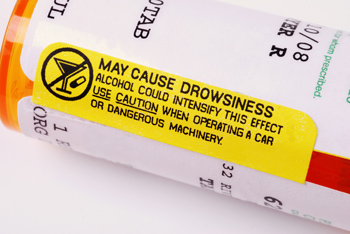Our DMV-approved online drivers education course is designed just for teens. Study at your own pace, pass the final test, and get your certificate.
Sign Up Now – Only $19.90 Learn More About Teen Drivers EdYou might think that your prescription medicine that is prescribed by your doctor would be safe and okay to take anytime, even after the expiration date, but it is not the case; prescription medicines can be dangerous to your health and have many adverse side effects including impairing your ability to drive.

You might think that it is okay to take any over-the-counter medicines without consulting your doctor, and it is okay to take them and drive afterward. But you should know that any over-the-counter medicine can be dangerous to your health and have adverse side effects on your health and ability to drive an automobile.
It is important to know that some prescription drugs or over-the-counter drugs can impair your driving ability.
Also, taking different drugs together or taking alcohol and drugs can create adverse health side effects and dangerous situation for driving.
The law requires you to make sure that you have the ability to drive without any impairment from drugs or alcohol or the combination of the two before getting behind the wheel.
Always ask your doctor or pharmacist about all of the drugs that you are taking (prescription medications or over-the-counter medicines) and whether you can drive after taking a particular medicine.
It is always recommended to ask your doctor before taking any over-counter-medicine, especially if you are pregnant, nursing a baby or having any health condition.
If you do not have any conditions that limit you from taking over-the-counter medicine, follow these steps before taking over-the-counter medicine and driving:
When you see any of the warning statements about making you drowsy or warning against driving, you should not drive after taking that medicine.
If you must drive, select another medicine that does not impair or affect your ability to drive.